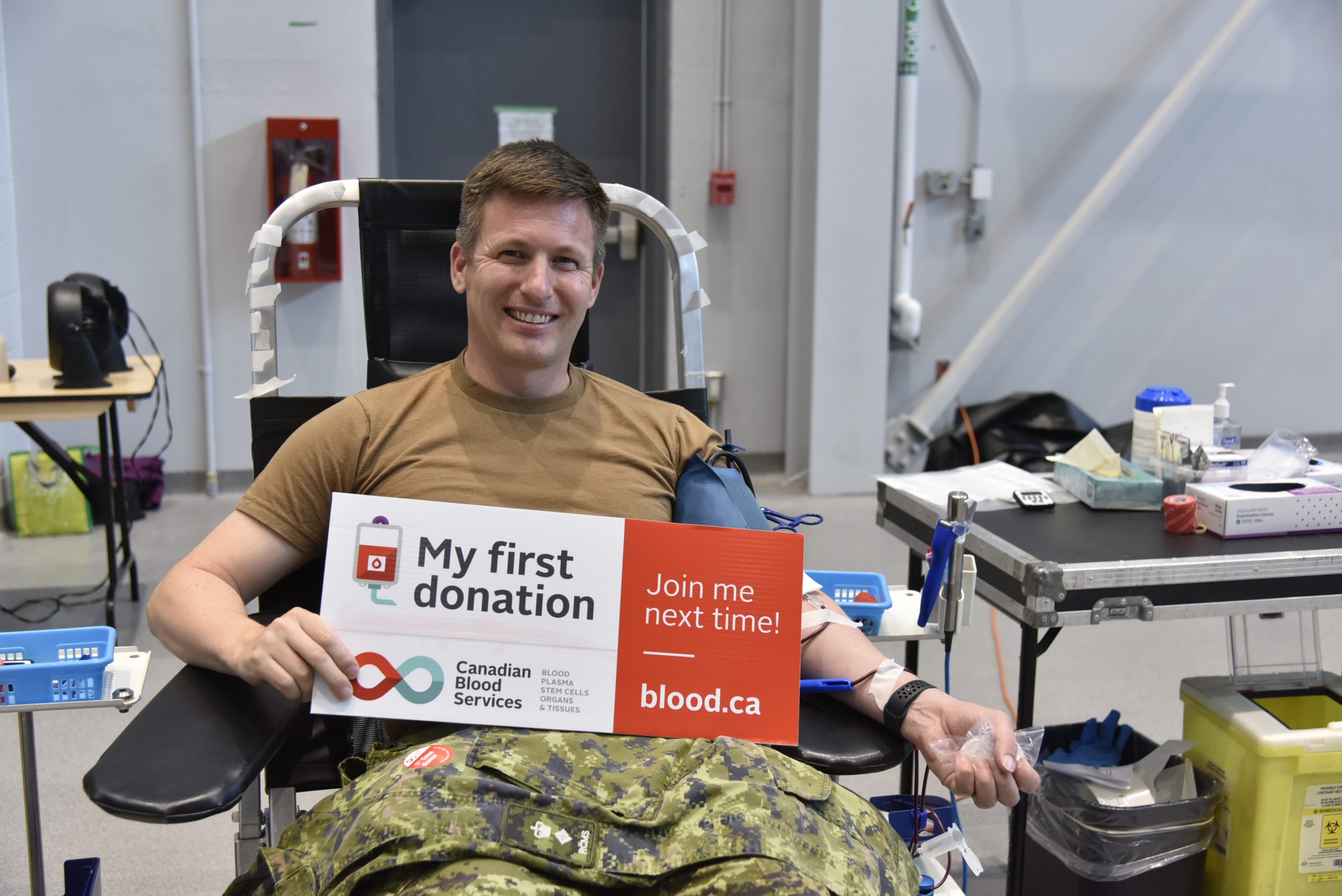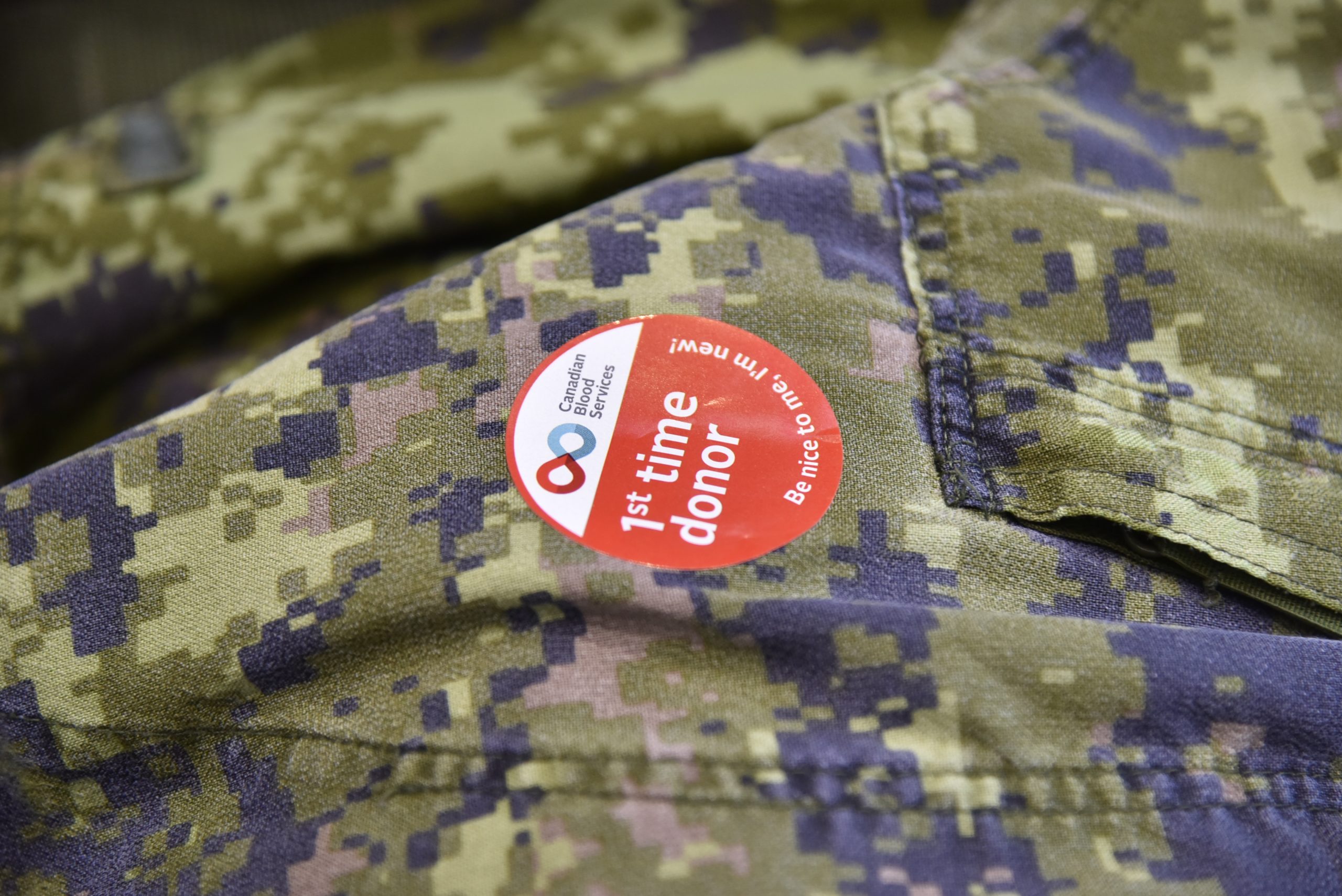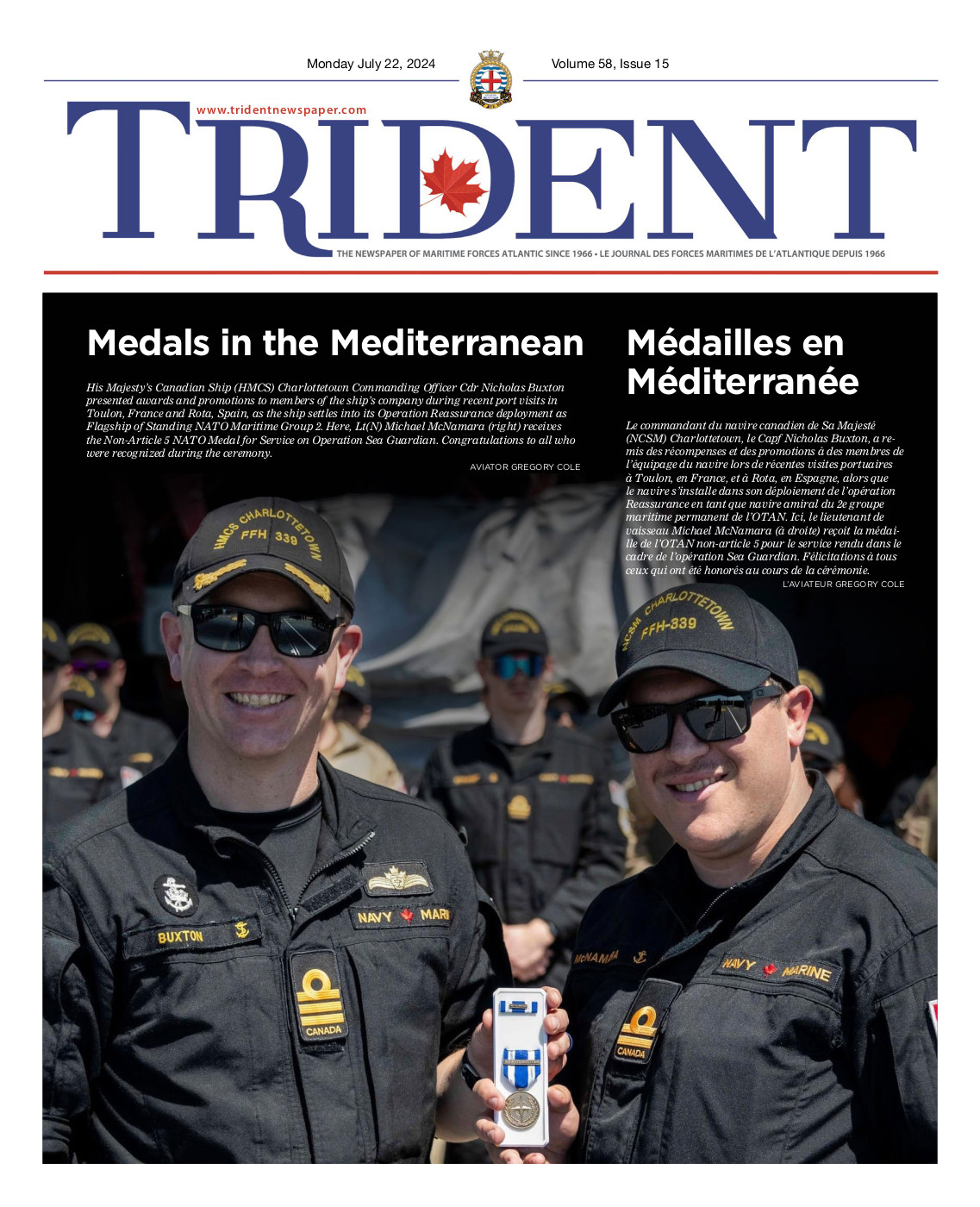
ARIANE GUAY-JADAH, BASE PUBLIC AFFAIRS
An important change paving the way toward a more inclusive donor experience
By Ariane Guay-Jadah,
Base Public Affairs Officer
On October 24, 2022, CFB Halifax hosted another successful Canadian Blood Services blood clinic on base at the Naval Fleet School (Atlantic) drill shed, with 67 donors participating in total. This time however, an important change was underway, as it was the first blood clinic since Health Canada and Canadian Blood Services officially altered donor criteria that have historically excluded many gay, bisexual and other men who have sex with men from donating blood.
This change is based on scientific evidence made in recent years and represents an important human rights milestone – especially for 2SLGBTQI+ individuals, communities and allies – as it promotes gender-neutral behaviour-based screening for all donors, therefore creating a more accessible and equitable blood donation system nationwide.

The Commanding Officer and Clinic Manager of Canadian Forces Health Services Centre (Atlantic), Lieutenant-Colonel (LCol) Justin Keddy, was on-site at CFB Halifax’s Canadian Blood Services event on October 24 to donate for the first time, free to do so given this recent change in donor eligibility.
“For me, this is a big and important change,” he explains. “As a gay man, as someone working in health services, it’s like this final big government regulation that finally allows us to participate in this process (…) This is a massive shift and a big step towards de-stigmatizing our community.”
Throughout his 17-year Canadian Armed Forces (CAF) career, LCol Keddy saw several opportunities to donate blood lost due to donor criteria restrictions. One notable example took place during his 2018 Operation IMPACT deployment to Iraq with a medical treatment facility. Working in a semi-austere environment with limited whole blood capacity meant that the medical team relied heavily on a “walking blood bank system” which largely drew upon members of the staff, and especially so during multiple casualty events. Despite being a prime candidate due to his universal donor status and day-to-day operations (as an administrator, he was not treating patients and as such, had more flexibility to donate), LCol Keddy was prohibited from contributing to the blood collections that would go on to sustain and save lives.
“It was very stigmatizing. It was very unfortunate because I wanted to help,” he describes. “I’m in healthcare and in the military to help people, and I couldn’t lead by example in that way.”
Over the past decade, Health Canada has authorized several changes to the donor deferral periods for men who have sex with men (from a lifetime restriction to five years in 2013, to one year in 2016 and to three months in 2019). The slow pace of change, although frustrating for many, has involved crucial advocacy work and research that have helped inform – and continue to help inform – more inclusive eligibility criteria for blood (and plasma) donations.
This recent change has brought about much reflection and recognition of the progress that has been made toward fostering a more accessible donor experience and amplifying life-saving blood donations. For LCol Keddy, the long wait and anticipation made his first donation a memorable and meaningful one: “Today, being able to donate – on base, for the first time and in uniform – is very special. The old barriers are gone and now I can contribute, again if I’m on deployment or just as a regular citizen. Being able to give blood is so valuable, especially being a universal donor. As the Canadian Blood Services team mentioned earlier, I am saving three lives today.”
Thank you to LCol Keddy for sharing your story, for donating life-saving blood and for raising awareness on this important issue. For more information on the ABCs of Canadian Blood Services donation eligibility, click here. For more information on how you can donate and support Canada’s lifeline, visit Canadian Blood Services here.





